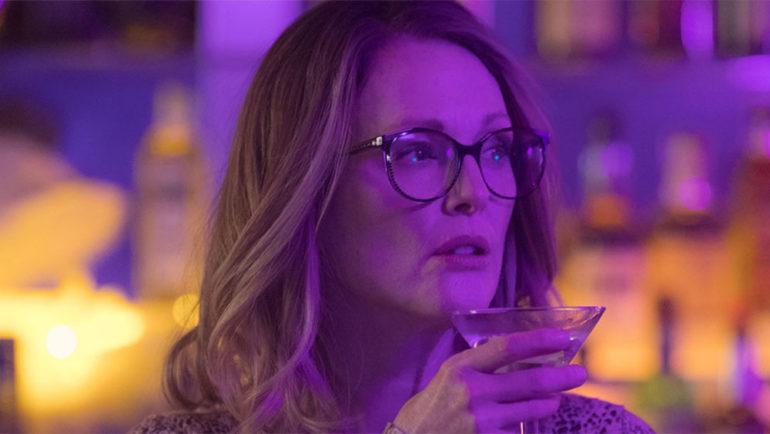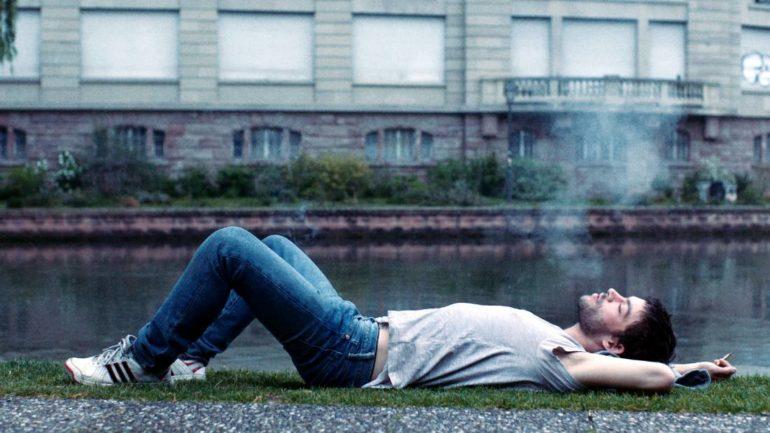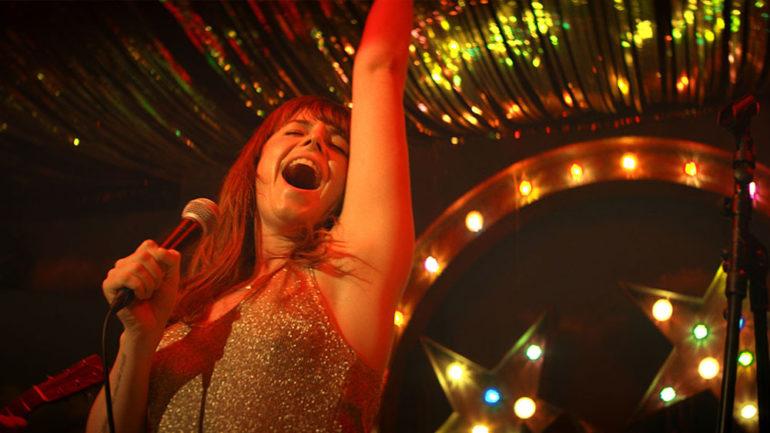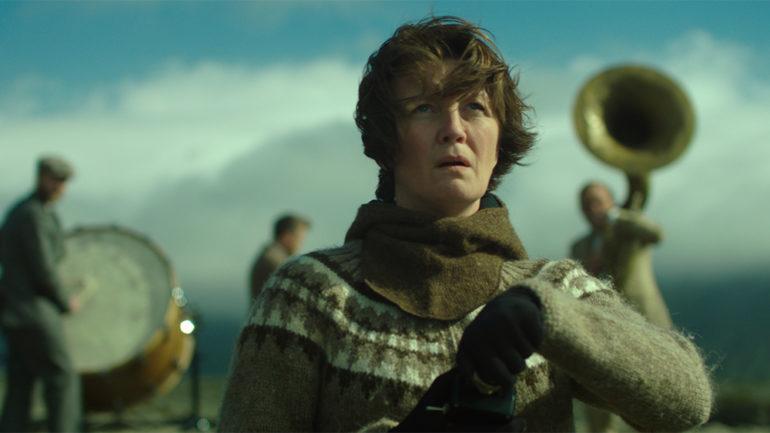The 15 Best Films of 2019 (So Far)
By Peter Debruge
LOS ANGELES (Variety.com) – By now, audiences have caught on to the way American distributors tend to stockpile their quality movies for end-of-year award-season release, but that doesn’t mean there aren’t treasures to be found in the first two quarters. In fact, sometimes it’s the movies that aren’t making a self-important Oscar push that wind up hitting closest to our hearts — and providing respite from such recent turkeys as “The Beach Bum” and “Wonder Park.” With quality to be found everywhere from blockbuster superhero sagas to niche-release art-house fare, it turns out 2019 is off to a good start. Variety chief critics Owen Gleiberman and Peter Debruge pick their favorite releases of the year so far.
Avengers: Endgame
| Marvel Studios |
In his Variety review, Peter Debruge called it “the ultimate fan-service follow-up,” and that nails the riveting and cathartic satisfactions — and, just maybe, the built-in obsolescence — of this toweringly crafted and moving act of utilitarian comic-book closure. Every rivalry and alliance, every superhero vulnerability that’s been built up over three installments of the “Avengers” saga — and 18 other Marvel movies — locks into place with sweeping intricacy and grandeur as the Russo brothers prove themselves, more than ever, to be the Howard Hawks of comic-book cinema: avid storytellers who will always find the human nuance in swashbuckling caped-demigod derring-do. Fighting for lives that have already been lost, the Avengers get pushed up against walls they didn’t know were there, only to push back, emerging out the other side of a looking glass of desperation. The film, at its best, leaves you drop-jawed with dread and delight, yet now that we know how it all ends, “Endgame” may seem less like a movie than like a once-in-a-decade holiday we don’t need to return to. — Owen Gleiberman
Birds of Passage
| The Orchard |
On the opposite end of the cosmic spectrum from “Avengers” (which earned $827 million) is this brilliant but barely seen drug-running thriller — Oscar-nominated Colombian director Ciro Guerra’s answer to the obsession with Pablo Escobar and other South American narco-traffickers — which has earned a measly half-mil at the box office. Such is the state of subtitled movies today, although it’s the foreign perspective that makes “Birds of Passage” so essential, and the culturally specific details (from the matriarchal courtship dance that opens the film to the bold color symbolism woven throughout) that elevate it to an essential work of art. Still, the film is infinitely more accessible than Guerra’s “Embrace of the Serpent,” interweaving ethnographic elements with old-fashioned genre thrills, à la “Goodfellas” or “Blow.” Except the film doesn’t glamorize the outlaws behind Colombia’s late-’60s “Bonanza Marimbera,” but focuses on how it devastated the impoverished indigenous communities in the country’s arid northern region. — Peter Debruge
Booksmart
| Annapurna |
It’s uncanny: Of all the film genres in existence, high-school buddy movies never get old (considering that a naïve new crop of audiences emerges every few years), but few feel as fresh as Olivia Wilde’s directorial debut, which taps into something essential about today’s teens: from the sexual fluidity of its Gen-Z ensemble to the refreshing idea that these kids are smarter than ever, but still plenty capable of behaving like colossal idiots. Bolstered by an affirmational, I-got-your-back friendship between two inseparable nerds (Kaitlyn Dever and Beanie Feldstein, familiar faces destined for much bigger things), “Booksmart” takes place on the eve of graduation, as a pair of social outcasts attempt to cram all the partying they missed into a single night. Sounds like “Superbad”? Or “Fast Times at Ridgemont High”? Then bring your grandkids, Oldsmobile. Maybe they can explain it to ya. — PD
Carmine Street Guitars
| Sphinx Prods. |
Ron Mann’s spry and beguiling portrait of a venerable guitar shop in New York’s Greenwich Village is a documentary love poem to a lot of things that are hanging on more than you’d expect: the analog allure of instruments built by hand, the cranky camaraderie of urban bohemia in a world of rising rents and chain-store values, the primal simplicity of rock ‘n’ roll. The movie’s central figure, Rick Kelly, is a soft-spoken, cloud-haired craftsman who makes guitars that are prized around the world out of the wood he salvages from old New York buildings. This isn’t recycling — it’s alchemy. There’s a sonic magic to that wood, and Kelly does more than craft the instruments; he breathes life into them, like the Geppetto of rock ‘n’ roll. The movie is a lyric ramble crafted as a shaggy fairy tale, and it finds room for some fine musicians to discover new ways to seduce us with sound. — OG
Diane
| IFC Films |
In his remarkable first dramatic feature, writer-director Kent Jones tells the story of a widow, played by the 70-year-old Mary Kay Place, living in a close-knit community of rural Massachusetts. She and her fellow boomers have done something they were never remotely prepared for (they’ve gotten old), and in telling Diane’s story, Jones is really looking at the consciousness of the first generation of people to reach their senior years without letting go of the stubborn dream of youth. Place’s performance is a revelation. Her Diane, as much as any of us, is a fantastic contradiction — testy and selfless, a restless wanderer and maternal caretaker, a woman embracing life as she navigates the precipice of death. The movie is funny, angry, warm, luminous, and, by the end, a mystical experience. — OG
Gloria Bell
| A24 |
When approached about appearing in a remake of Argentine art-house sensation “Gloria,” Julianne Moore insisted that the original project’s creator, Sebastián Lelio, be the one to direct her. It was a smart call, considering that Lelio, who won an Oscar for “A Fantastic Woman” in the interim, is one of the world’s most generous filmmakers. That much is evident in the role itself — that of a fiftysomething divorcée who tentatively allows herself to be vulnerable with a likable cad (John Turturro). Apart from one cathartic scene, when Gloria puts her freshly acquired paintball skills to use, this is a relatively subtle performance from Moore, with none of the teeth-baring intensity of her “Don’t call me ‘lady’!” standoff in “Magnolia,” but that’s what makes it so special: She doesn’t seem to be acting so much as inhabiting this middle-aged woman who optimistically believes the best is still to come. — PD
How to Train Your Dragon: The Hidden World
| DreamWorks Animation |
From Avengers to X-Men, this has been a year of saga-ending sequels — not low-performing franchise-killers (the only way film series would end in the pre-Harry Potter era), but movies deliberately and respectfully designed to provide emotional closure to years of avid investment from loyal audiences. The fact that the most resonant of these finales should come from DreamWorks Animation, the studio whose every release since “Shrek” has felt engineered to auto-generate followups, is all the more remarkable. Also noteworthy, considering the medium: Writer-director Dean DeBlois has allowed the characters of Viking runt Hiccup and his dragon companion Toothless to grow up together, making the most of the installment where they must inevitably grow apart. And the thing that comes between them? An ultra-rare romantic interest — a pearlescent Light Fury — who opens a new dimension of Toothless’ personality in the series’ most gorgeous entry yet. — PD
Leaving Neverland
| HBO |
The rare documentary that’s had a seismic impact in the real world, Dan Reed’s four-hour, two-part movie presents, in chilling and sensitive detail, the testimony of two men, Wade Robson and James Safechuck, who claim — and make an overwhelmingly convincing case — that they were sexually abused as children by Michael Jackson. As Robson and Safechuck describe it, Jackson won their trust, wooed their families, and betrayed their friendship by distorting it into what Jackson may have thought of as “seduction” — but was, according to Robson and Safechuck, a physical and spiritual violation. Following its bombshell premiere at the Sundance Film Festival, the movie played on HBO, where it was viewed by millions. Yet it remains, in the most elemental sense, a work of cinema. To experience “Leaving Neverland” is to confront and evaluate the charge that the greatest pop genius since the Beatles was a monster, and the way we judge the testimony relates to the extraordinary intimacy the film creates between the audience and these two witnesses. Watching “Leaving Neverland,” we, too, bear witness. — OG
Our Time
| Courtesy of Venice Film Festival |
I get it: Not everyone goes to the movies to watch a filmmaker work out his marital issues onscreen. Such ultra-personal explorations are the opposite of escapist entertainment, but that’s what makes them so courageous — and so relevant to our own lives. In “Post Tenebras Lux,” Mexican director Carlos Reygadas’ considerably more challenging 2012 art film, he broached the issue of fissures in his marriage. Half a dozen years later, the helmer has stripped back the fictive filter even further, casting his own kids, wife Natalia López and himself as a nontraditional family. This leisurely and misleadingly realistic auto-portrait takes place on their property, where a possessive rancher-poet struggles to honor his wife’s desire for independence, sexually and in spirit. As in Angelina Jolie’s “By the Sea,” the film walks the line between narcissism and vulnerability, with predictably divisive, but undeniably revealing results. — PD
Non-Fiction
| Sundance Selects |
The French writer-director Olivier Assayas makes daringly conceived, exquisitely crafted movies that American art-house audiences, for some reason, don’t seem very interested in seeing. “Personal Shopper,” his audacious ghost story starring Kristen Stewart, went nowhere, and you could hear a pin drop in the sparsely attended theaters where this dishy drama about the Paris literary scene has been playing. Yet it’s a captivating movie about — wait for it — conversation. (Oh, that.) A kind of book-gossip cousin to Woody Allen’s “Manhattan,” it follows a handful of characters — an editor (Guillaume Canet) with his eye on the bottom line, his TV-actress wife (Juliette Binoche), a bohemian purist of a novelist (Vincent Macaigne) — as they struggle, in contrasting ways, to adapt to the digital world. The talk is gripping, reinforcing the film’s message that words, even in the 21st century, can be enough. — OG
Sauvage
| Strand Releasing |
Here is the queer response to “Pretty Woman” and its ilk — a denial of Hollywood romances where a suave sugar daddy whisks a prostitute off her feet, or the hero runs toward his one-and-only in the airport-set climax. Such clichés are so deeply entrenched in audiences’ minds that it takes some time to rewire your brain to the way director Camille Vidal-Naquet and breakout star Félix Maritaud challenge our perceptions of sex work in this raw, but intricately tuned collaboration. Grubby as a cast-out mattress, 22-year-old Leo (Maritaud) may look like he needs rescuing, but that’s not the way this feral young man feels about his own situation: Turning tricks for cash affords him a kind of freedom from modern society, and though it’s tough watching him sleep in parks and drink from gutters, the connection-starved character maintains a kind of integrity that doesn’t fully register until the powerful last scene. — PD
Shazam!
| Warner Bros. |
It almost seems like a superheroic feat: a movie about a comic-book hero that’s not stitched and embedded, to within an inch of its blockbuster life, into a larger universe of other movies. Of course, that will happen, but for the moment “!” simply stands as the soulfully quirky and enchanting tale of a lost teenager (Asher Angel) who finds himself in the body of a grown-up superman (Zachary Levi) whose predicament would be faintly absurd even if he wasn’t wearing a skintight scarlet bodysuit bedecked with a cheesy lighting flash and a cape that looks like a tablecloth. The beauty of Zachary Levi’s performance is that he plays Shazam as an overgrown kid struck with wonder at his own powers. He’s got a quality that the entire movie does, one that’s all but disappeared from Hollywood’s comic-book-industrial complex. Call it innocence. — OG
Toy Story 4
| Pixar |
What does it say about the strength of Pixar movies that their fans actually seem to dread sequels, as if the company might do something to undermine their love for the films that have come before? For those who remember, that kind of nervous anticipation has awaited every followup in the “Toy Story” franchise, although in the end, Pixar manages to pull it off, deepening our connection with Buzz Lightyear and Woody — one-time rivals who’ve since become the best of friends. If you’re the sort who’s worried that the studio should’ve stopped after Andy passed his playthings along to a new kid, Bonnie, don’t be: “” repeats many of the original’s pleasures for a younger generation (including a handmade new addition, Forky, toward whom Woody has a more mature attitude) while satisfying adults with beautiful animation and fresh existential questions about what it means to be a toy. — PD
Wild Rose
| Neon |
It could turn out to be be the indie sleeper of the year. As Rose-Lynn, a brazen young ne’er-do-well from Glasgow who’s fixated on going to Nashville to become a country singer, Jessie Buckley proves a tremendous actress, and maybe a born star. When Rose-Lynn gets up on stage at a local pub and lets loose, time melts away (we’re in the zone of incandescent tradition that is country), and so does every trace of her Scottishness. She becomes country, and her gift is transporting. Yet Rose-Lynn is also a spectacular screw-up, with two kids she all but ignores. The director, Tom Harper, and screenwriter, Nicole Taylor, play a bait-and-switch game. For a solid hour, they seduce you into thinking that “Wild Rose” is going to be the sort of cheeky inspirational Miramax-in-the-’90s fairy tale it turns out not to be. It’s not just that the movie gets better as it goes along — it actually
knows
it’s toying with you. The film seems to grow up before your eyes and find its glimmer of soul right along with its eager, talented, messed-up heroine. — OG
Woman at War
| courtesy magnolia pictures |
Imagine an eco-terrorism movie with the playful spirit of “Amelie,” in which a lone crusader (an irresistible Halldóra Geirharðsdóttir) stands up to the faceless industrial forces pillaging Iceland for its natural resources. That delightful mix — in which a bow and arrow are enough to bring down an entire power grid, while a three-piece band accompanies her exploits from the corner of the screen — was enough to inspire Jodie Foster to acquire the rights for a remake. Far greener than you might imagine, Iceland remains one of the most unspoiled and otherworldly outposts on earth (which explains why “Game of Thrones” and the “Thor” movies used its locations to represent faraway planets), and here, “Of Horses and Men” director Benedikt Erlingsson captures the country’s primeval charms as few movies have, making it easy to root for the vigilante environmentalist who goes to hilarious lengths to awaken the public to the damage of “progress.” — PD
RELATED:







